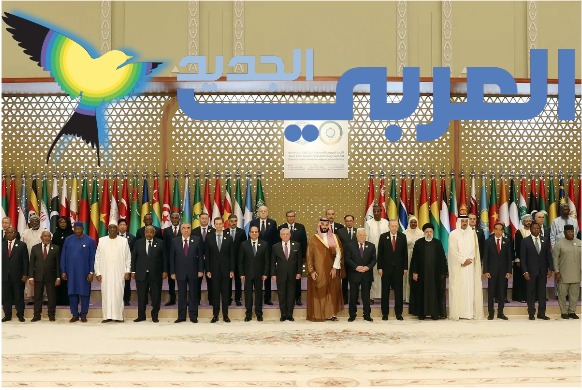In the face of the intense nerve-wracking atmosphere, we attempted to analyse the outcomes of the Riyadh Summit, which was spread to include 31 items. Many did not expect much from the summit, which was embarrassingly delayed. Nevertheless, to stay positive, let’s focus on the key points in the summit’s statement presented as “decisions” and insist on their immediate implementation by Arab and Islamic governments.
It talked about, “Breaking the siege on Gaza and forcing the immediate entry of Arab, Islamic, and international humanitarian convoys, including food, medicine, and fuel to the sector.” It calls on international organizations to participate in this process. It emphasizes the necessity for these organizations to enter the Strip, protect their convoys, and enable them to fulfil their roles completely. It also mentions the support of the United Nations Relief and Works Agency for Palestinian Refugees (UNRWA). Following in the same context is the subsequent item expressing support for Egypt and urging the backing of its efforts to provide immediate, sustainable, and sufficient aid to the sector in response to the heinous Israeli aggression on Gaza.
Despite the expected disappointment from the most part of the outcomes of the Arab-Islamic summit, we urge Arab governments to start implementing the “decision” to break the siege on Gaza. This decision carries an international character as it was issued by two international organizations, the Arab League and the Organization of Islamic Cooperation (OIC), with a membership exceeding a quarter of the countries of the world. The stated text falls under the broad heading of “Summit Decisions,” meaning it is not just a call or a demand but a direct decision to break the siege. Consequently, the Arab and Islamic peoples represented by these organizations await the implementation mechanisms of this decision.
There are two main outlets to break the siege: the Rafah crossing and the sea route to Gaza and its port. The Rafah crossing is located internationally under Egyptian sovereignty from its side and Palestinian sovereignty from the Gaza side, with no Israeli presence. Israel must refrain forcefully from interfering in its administration at any time. However, in the past month, the significant and bitter question that lingered in the air of the genocidal war was: Why does Egypt accept Israeli interference and control of the crossing, determining what enters Gaza and what doesn’t, even though it is loaded with aid in Al-Arish airport? This must end immediately with the decision of the Arab-Islamic summit, and sovereignty over the crossing must return to Egypt.
At the same time, we can imagine or dream of a hundred relief ships heading to the shores of Gaza, raising the flags of their countries, the flags of the United Nations, and the flags of international relief organizations, in addition to the solidarity ships. Such a scene and the actual movement can contribute to breaking the siege, if not breaking it entirely. Israel will not be able to bombard all these ships, even if there are only 20. The incident of the Turkish relief ship Mavi Marmara (May 2010), a single ship, provided a lesson of great importance as it embarrassed Israel.
[by Khalid Al-Huroub in Al-Araby Al-Jadeed]
Compiled and Translated by Faizul Haque




